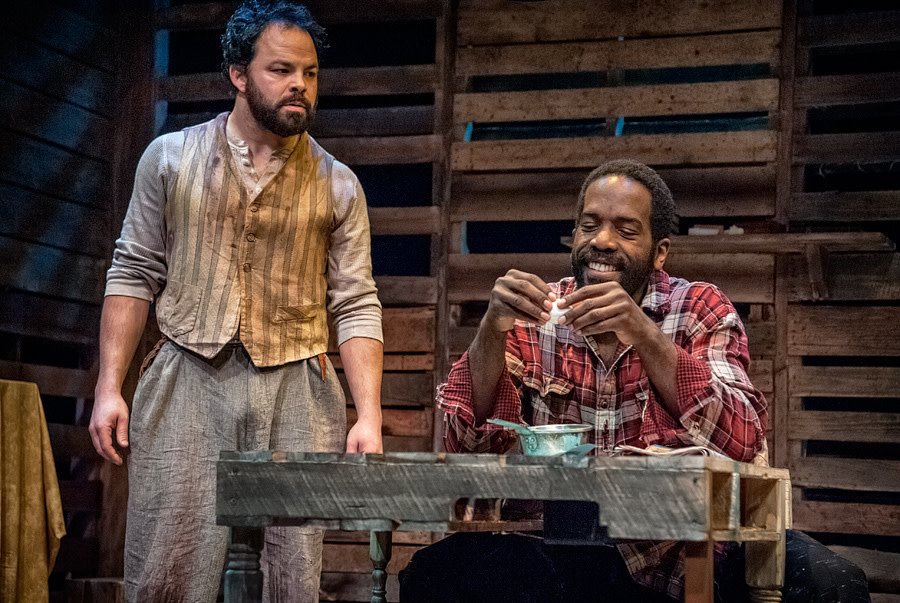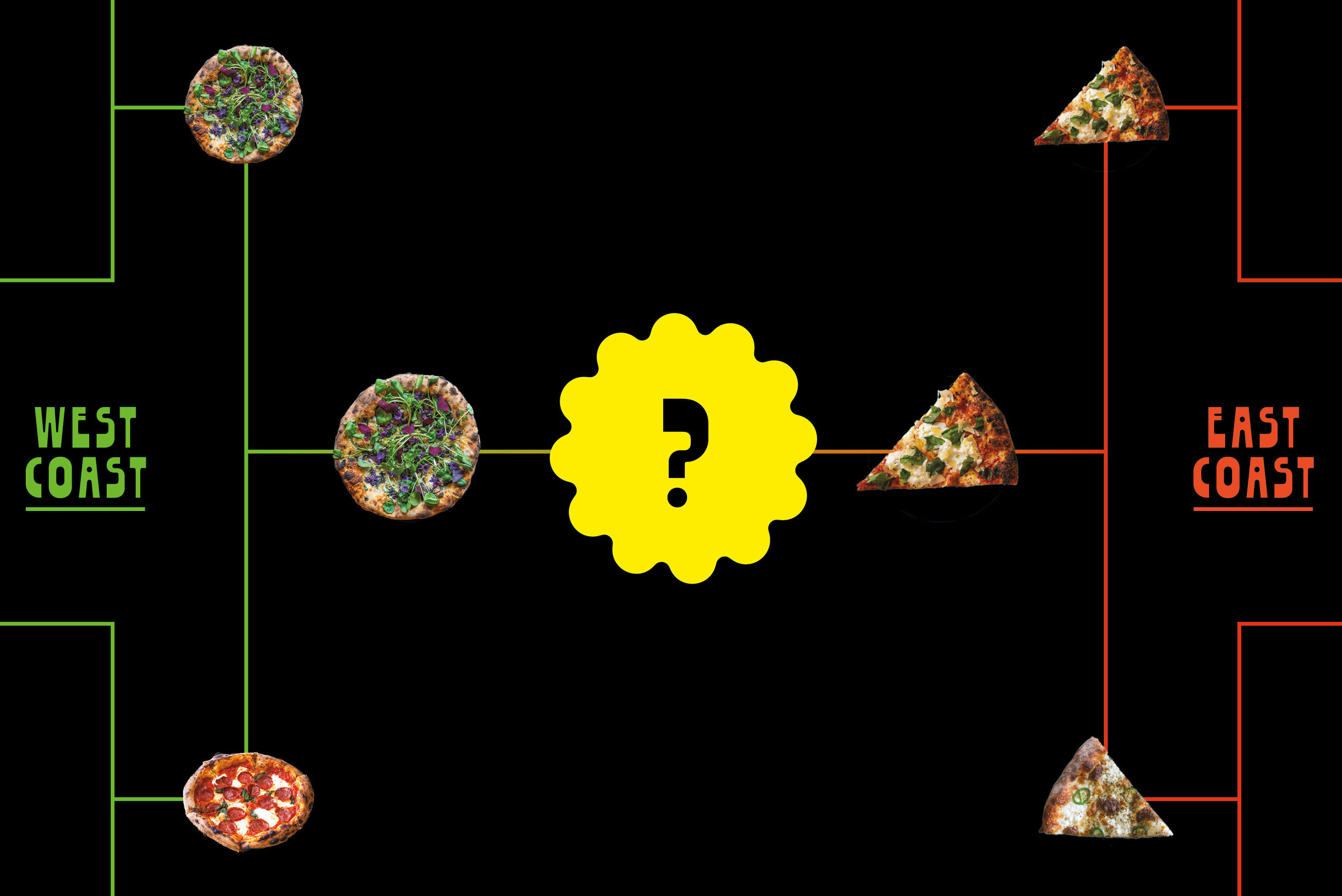Review: Profile’s “Blood Knot”

Ben Newman (left) as Morris and Don Kenneth Mason as Zach. Photo by Jamie Bosworth.
Editor's Note: If you didn't see, the barely homeless Profile announced at the opening night of Blood Knot that it has found a new home come June: Aritsts Repertory Theatre. Grand news, indeed. Read our story here.
Athol Fugard’s 1961 play, Blood Knot, was so controversial in his native South Africa that, after a single performance, authorities arrested its two interracial actors, banned the play, and passed censorship laws prohibiting racially mixed casts and audiences. After its 1967 premiere on British television, they revoked Fugard’s passport and subjected him to frequent interrogation, backing down only after four years of public petition. After seeing Profile Theatre’s intimate, intense production, it’s easy to imagine why. Still potent today, the play was no doubt like tearing atoms during the height of apartheid.
The story is simple enough: two brothers share a one-room shanty (evocatively constructed from wooden pallets, cardboard, and duct tape by scenic designer Kristeen Willis Crosser). Morris (Ben Newman) stays home, cleaning, cooking, and preparing a hot salts tub for Zachariah (Don Kenneth Mason) to soak his feet in after a long day at work. So everyday unfolds, one after another, ruled by the alarm on Morris’s clock that alerts him when Zach is due, when dinner should be eaten, when to go to bed.
Blood Knot
Profile Theatre
Theater! Theatre!
Thru March 17
But deeper tensions lurk in the shadows of the shack. Morris, whose skin is so light he can pass for white, has big plans for “the future” that drive all his patronizing choices and conversation: save every last penny to buy a farm together. The much darker Zach festers under his brother’s overbearing future, romanticizing instead his years of drinking and womanizing before Morris returned to his life.
Hoping to appease Zach’s craving for “woman,” Morris suggests he get a penpal. But when they discover the woman is white—to Morris’s dismay and Zach’s delight—the racial tension, privilege, and resentment that has burrowed between the two since childhood erupts into a complex psychological duel masked as a game of make believe.
The play, which made Fugard’s name in America when it premiered off Broadway in 1964 starring James Earl Jones as Zach, explores similar themes as Profile’s Fugard season opener, “Mastor Harold”…And the Boys: two individuals who are very close due to history and shared experience are forced to examine their relationship for the first time, in the process delving into what their contrasting skin colors mean to the society outside their relationship. The difference explodes into the space between them, growing into a possibly unbridgeable gulf and leaving them (and us) to ask: What now? What next?
Both Newman and Mason, under Kevin Jones’s tight direction, give incredible performances that easily transform the intimate theater. And there are moments in the play, particularly when Morris first spits that ultimate of racial slurs at his brother, that fill the dense silence with incredibly dangerous electricity.
Yet Mastor Harold was the more affecting play for me. There was enough joy and love between the characters that it burned the audience when their relationship went up in flames. Blood Knot, on the other hand, starts with an already miserable relationship and proceeds to rerun its misery in a long-feeling one-note first act. It serves the purpose of establishing the fact that neither brother really sees or hears the other, as well as Zach’s seething resentment—heck, I’d want to slap Morris around after five minutes of his incessant chatter—but it does little to pull the audience into the characters. It’s only in the second act that we see both the love born between them and the ensuing devastation from their divide, although it’s weakened some by the reason of their conflict. (They place a weight in the exchange of two letters with a stranger that is nonsensical to today’s Internet age. I can only assume it was realistic in 1961, though it seems a somewhat tenuous foundation for a plot, particularly given their lack of imagination into alternative solutions).
While the script may lack a little on the dramaturgical side, it’s thunderously provocative in its activism. By using two brothers of differing shades, Fugard is able to strip away the supposedly biological underpinnings of race, laying bare instead its cultural construction. “This whiteness of theirs isn’t in the skin,” says Morris. “Otherwise I’d be one of them.”
Like Master Harold; like The Whipping Man, synchronistically exploring similar themes in a tandem run at Portland Center Stage (read our review), and like life itself, there’s no real resolution in Blood Knot. The play concludes with the implication that things will never again be the same, things have been said that can never be taken back. Yet it’s not at all clear that things will be any different. “No harm done,” says Zach. “We’re only playing. We’re brothers.” But we all know, it's more than just play.




